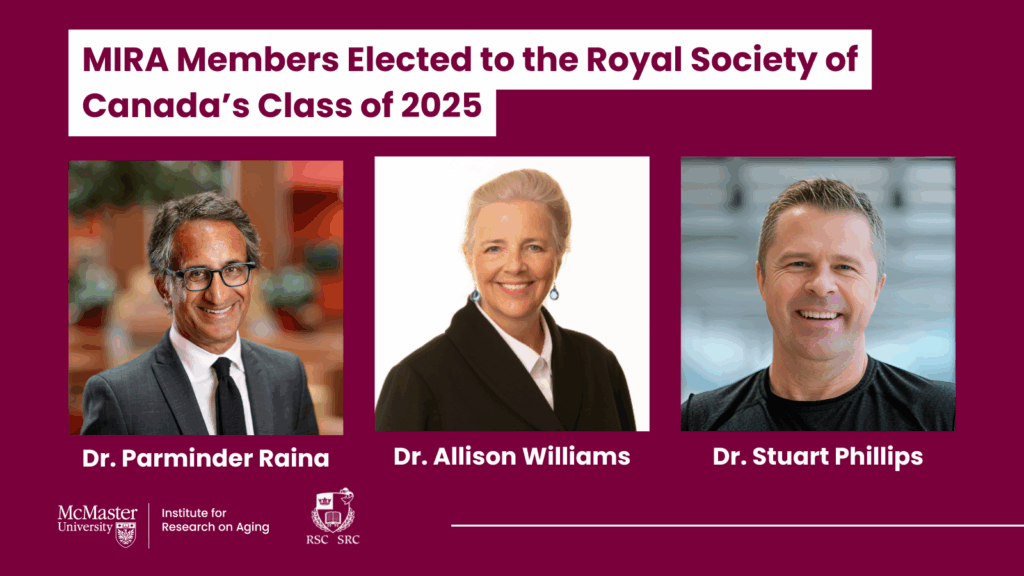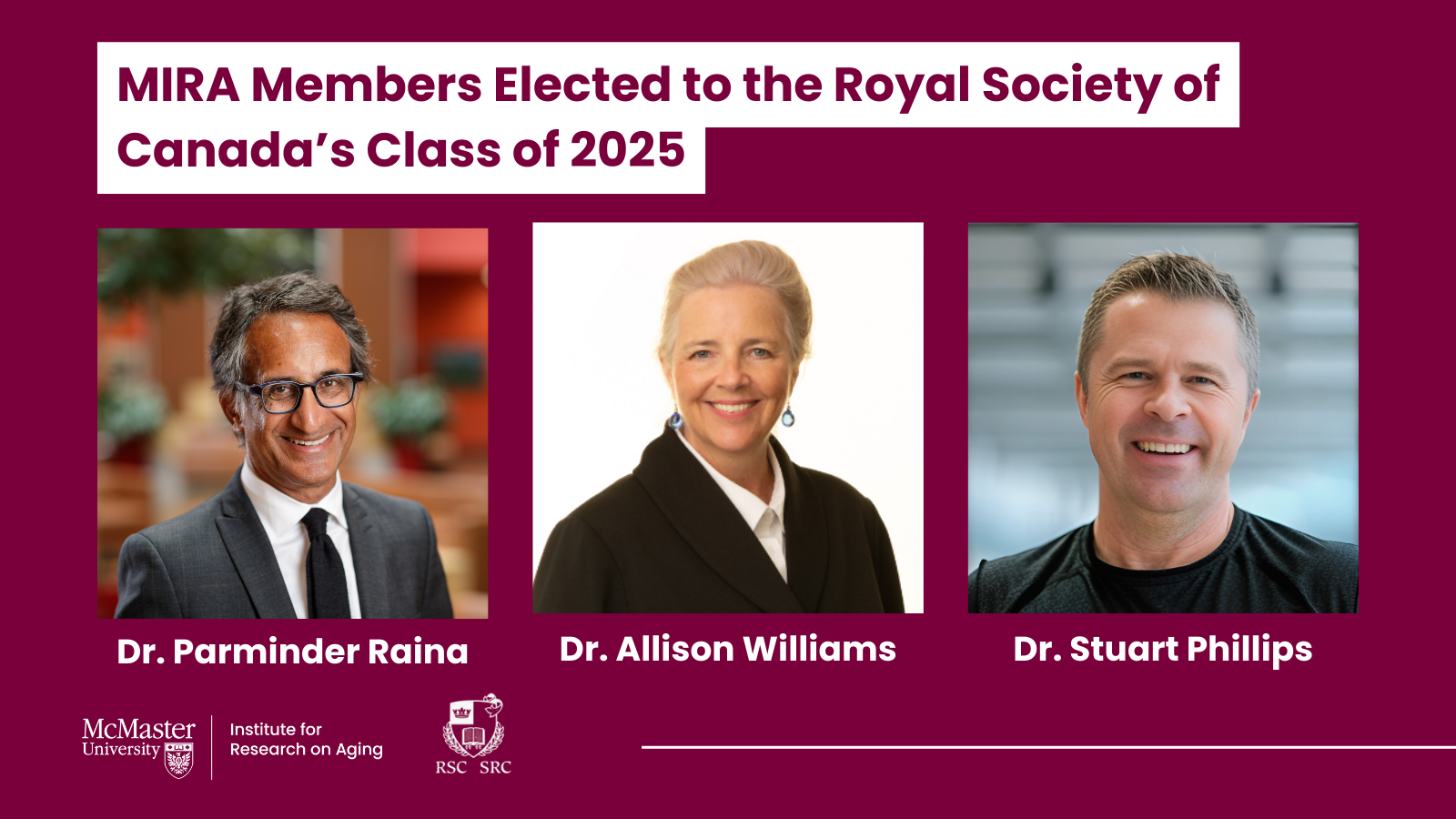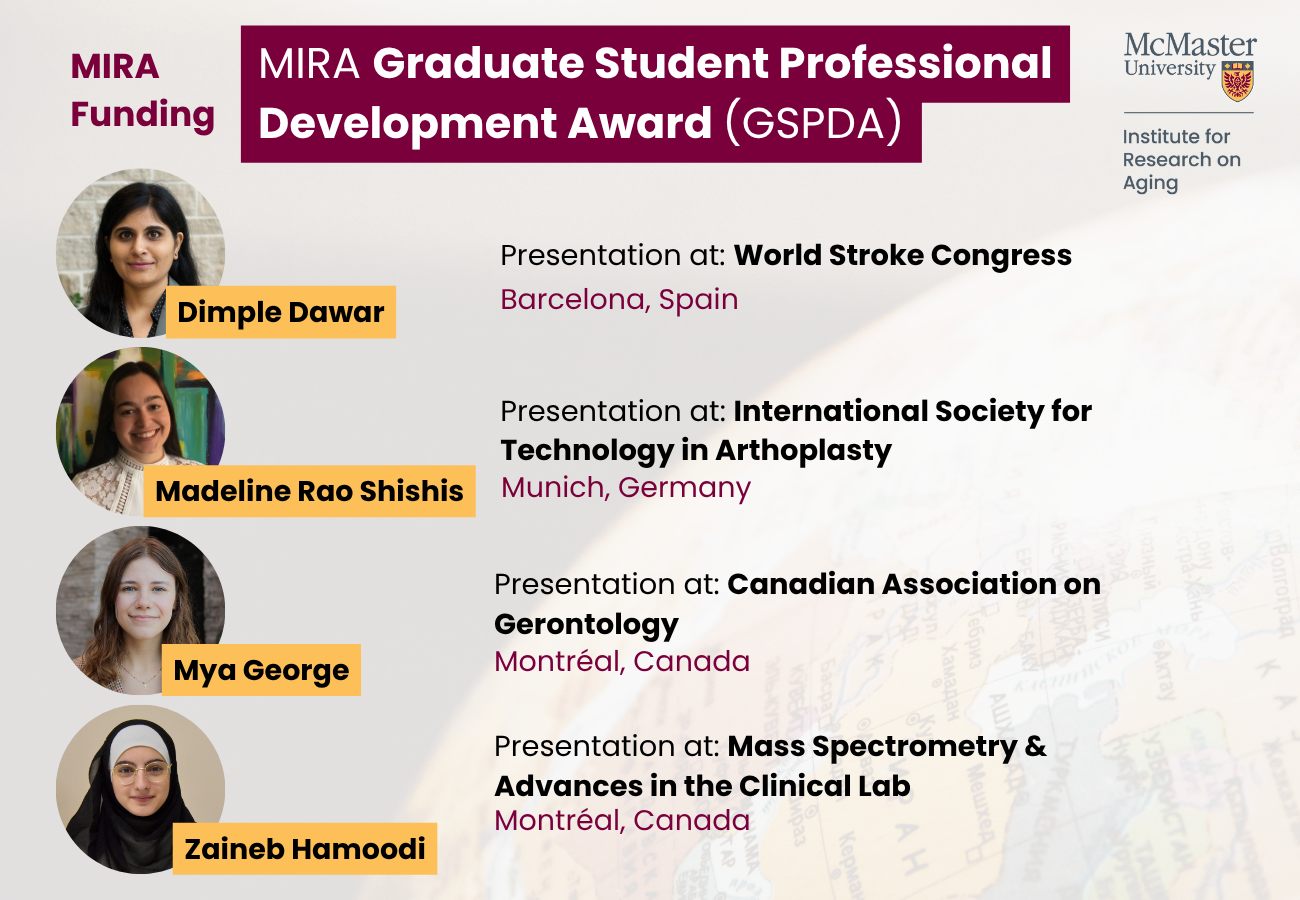
The McMaster Institute for Research on Aging (MIRA) congratulates three of our leading researchers—Dr. Parminder Raina, Dr. Stuart (Stu) Phillips, and Dr. Allison Williams—on their election to the Royal Society of Canada’s incoming class of 2025. This recognition reflects their transformative contributions to aging science, public health policy, exercise physiology and health geography.
The Royal Society of Canada (RSC), founded in 1882, is Canada’s senior national academy of distinguished scholars, artists and scientists. It comprises three discipline-based academies (Arts and Humanities; Social Sciences; Science) plus the College of New Scholars, Artists and Scientists, and its mandate is to recognize excellence, advise government and promote a culture of innovation nationwide. Election is by peer nomination and rigorous review, underscoring each inductee’s exceptional scholarly achievements and societal impact.
The Class of 2025 includes 102 newly elected Fellows——and 59 Members of the RSC College, representing outstanding mid-career leaders in emerging and established fields. MIRA’s Scientific Director Parminder Raina, lead PI of the Canadian Longitudinal Study on Aging, was elected a Fellow—Canada’s highest academic honour across all disciplines—of the RSC Academy of Science in recognition of scholarly impact and leadership in shaping policy-relevant aging research infrastructure.
Joining as elected Fellows are, Stu Phillips, Tier I Canada Research Chair (CRC) in Skeletal Muscle Health Scientists, recognized for world-leading work in muscle protein metabolism and exercise interventions for older adults, and Allison Williams, Tier 1 CRC in the Care Economy, Aging & Policy who joins the RSC Academy of Social Sciences for her innovative use of spatial analysis and mixed methods to examine caregiving systems, merging quantitative spatial methods with deep community engagement to address the social determinants of healthy aging.
This achievement from our researchers highlights MIRA’s growing impact as an institute for world-class aging research and embodies MIRA’s core values—bringing interdisciplinary approaches to challenges in aging and achieving real world impact. Through their leadership, they have contributed to McMaster’s thriving aging research ecosystem, securing major funding to lead ambitious programs of research in aging, and mentoring trainees who will become the next generation of aging research leaders.
Please join us in congratulating these exceptional scholars and in collaborating across disciplines to shape the future of aging research.


